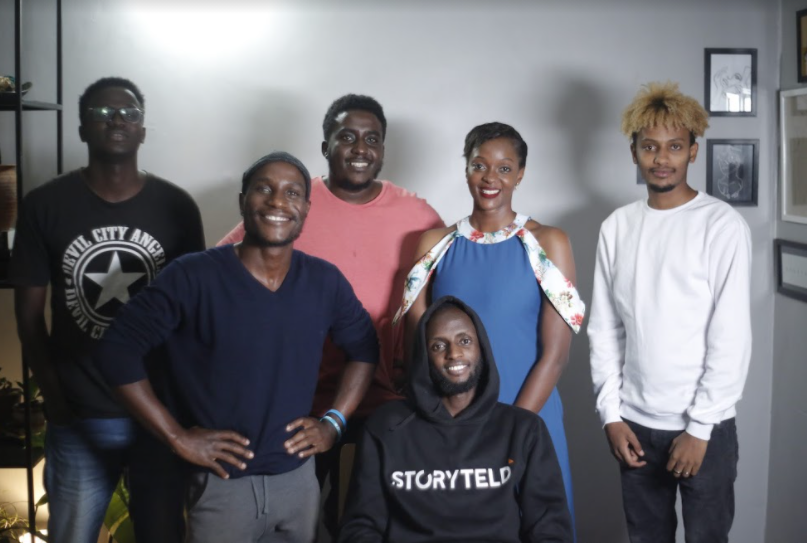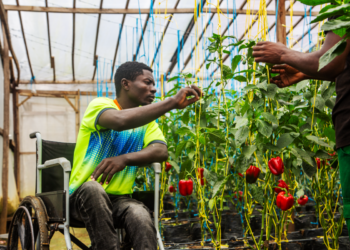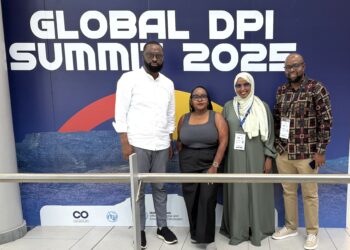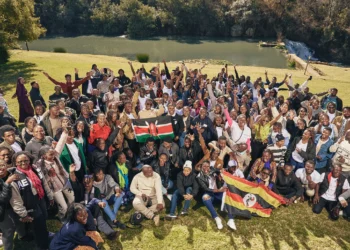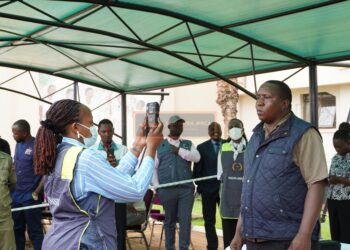At Café Garnish, a newly launched eatery in the lakeside Kampala suburb of Luzira, a waiter chops onions with the kind of speed and precision that, at first impression, seems designed to dazzle the STORYTELD video cameras filming his every move. Except it is all effortless.
The cameras and adjoining lighting are manned by Victor “Rock” Opira, a full-time cinematographer and video editor at STORYTELD, who is the editorial workhorse behind the content that the burgeoning multimedia company produces for its mobile-phone-and-Internet-using audiences.
STORYTELD is a Ugandan multimedia social enterprise that is packaging news content into short videos — aided by images, text, and sound — for digital native, new media audiences that prefer to access their information through web and social media platforms such as Twitter, Facebook, TikTok and Instagram.
By the time I arrive to find the filming in progress, Opira and Samuel-Stone Songa, STORYTELD’s co-founder and creative director, have gone through their notes and agreed on the kind of close-ups that they need to shoot for the online media outlet’s first-ever food-based content campaign. It becomes Songa’s duty, then, to provide me with a running commentary of their planning and filming work.
“Today, when Rock and I first came, we agreed that we are first going to capture the videos and then we’ll figure out — post-production — where we want to go further,” explains Songa. “Rock and I have gotten to a level where I am out here [doing the interview] but I know whatever Rock has been filming in the kitchen is what we are going to use. But we would never have gotten there if I had not worked in a [radio] newsroom that allowed me to work independently and develop my craft.”
When Opira takes a break from filming, he explains that over the two years that he has worked full-time with STORYTELD, having quit his more routine job at the same local television station that employed Songa, he has found fulfilment in the flexibility at the up-and-coming social enterprise, which allows him to nurture his creative instincts.
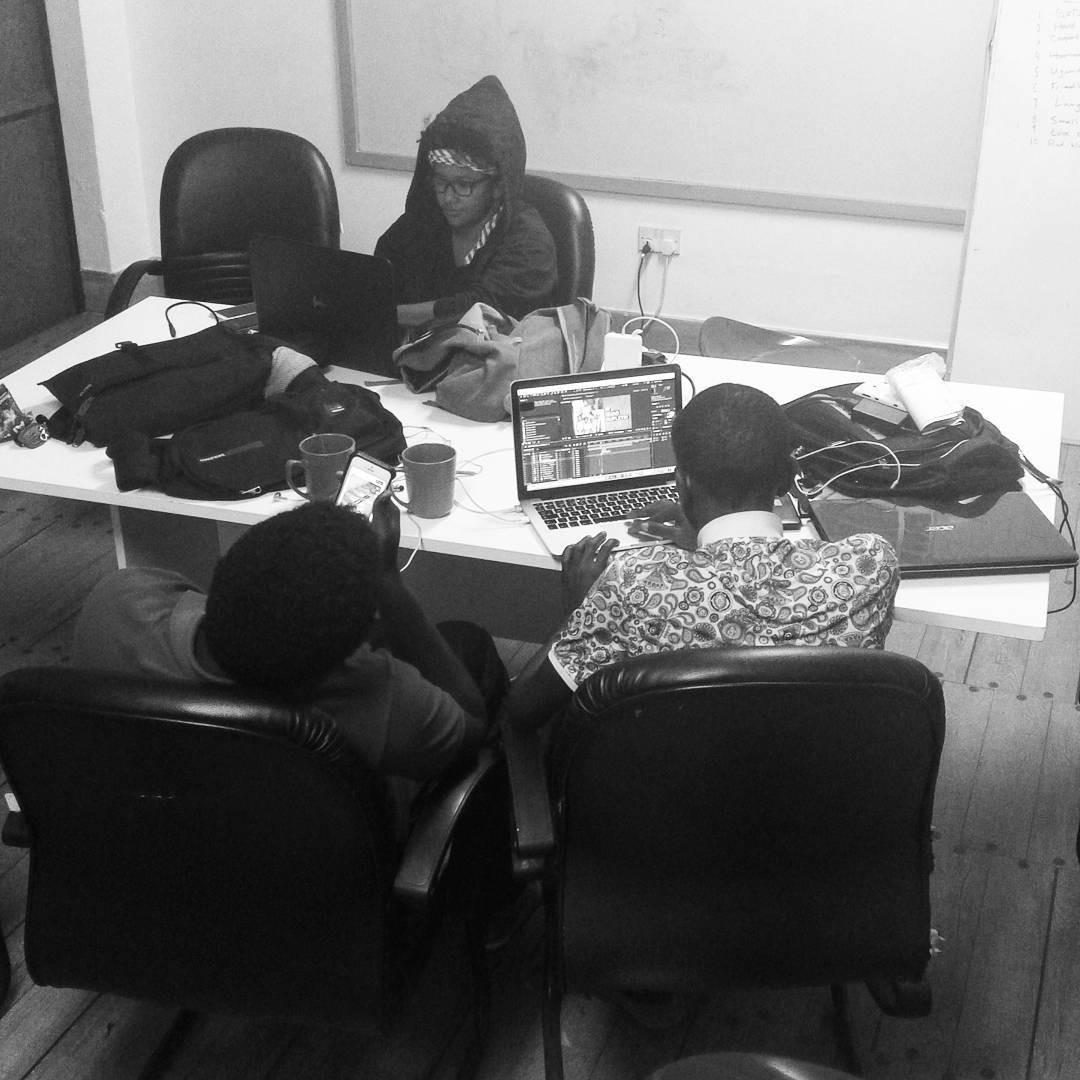
“It’s exciting when I am doing something and they give me the leverage to finish it up the best way I feel I know how, deep down I am satisfied because I feel like it’s not just about doing a job but doing it in a creative way,” he explains, adding that he feels like he learns something new each time he goes on a shoot.
When Songa and Opira need someone to voice their stories, they reach out to Rita Kanya Mbabazi, a part-time STORYTELD employee who also doubles as a primetime news anchor at NTV Uganda. Like them, she is passionate about trying out new storytelling ideas outside of the traditional media platforms.
STORYTELD has two other full-time staff, researcher Nana Omondi and Deogratius Ochau, a graphics animator, along with their executive director, Collin Rukundo.
Together, they have helped produce at least 30 videos of their own content over four years and several other countless videos of commissioned work that is specifically for clients and is not necessarily available on their online and social media platforms.
However, according to Songa, when producing their in-house content, the consensus across the STORYTELD establishment is that it is the quality, not the quantity, that they must focus their creative energies on.
“If content is well done, it will find its audience,” he said. “Sometimes it is good to have 100,000 followers, but if it is good content, somehow it will find its way to the right people. This year, for instance, we have not yet broadcast any work yet, but we have five projects that have all been commissioned.”
Most of STORYTELD’s content covers news and analysis on politics, business, culture, technology, as well as national, international, and life events through audio-visual content that is distributed on their website and social media platforms for mobile-first consumption.
By March 18, 2021, STORYTELD’s social media accounts had registered the following figures: 6,600 likes on Facebook, 1,592 followers on Twitter, 312 followers on Instagram, and 213 subscribers on YouTube.
On Facebook, the five most popular stories are of a 39-year-old Ugandan woman who has given birth to 38 children (157,000 views), a Ugandan media personality opening up about living with vitiligo (121,100 views), a poignant drone flight across locked-down Kampala during the day at the onset of the COVID-19 crisis (56,900 views), an explainer on why roads on Uganda’s capital Kampala are littered with British names (53,000), and a heart-warming narrative on the experience of an adoptive mother (51,000 views).
STORYTELD also provides its audiences with news and analytical stories on politics, business, technology, culture, and other areas of interest. The stories capture issues of human-interest stories that are drawn from local, regional, and international developments, as well as commissioned story ideas.
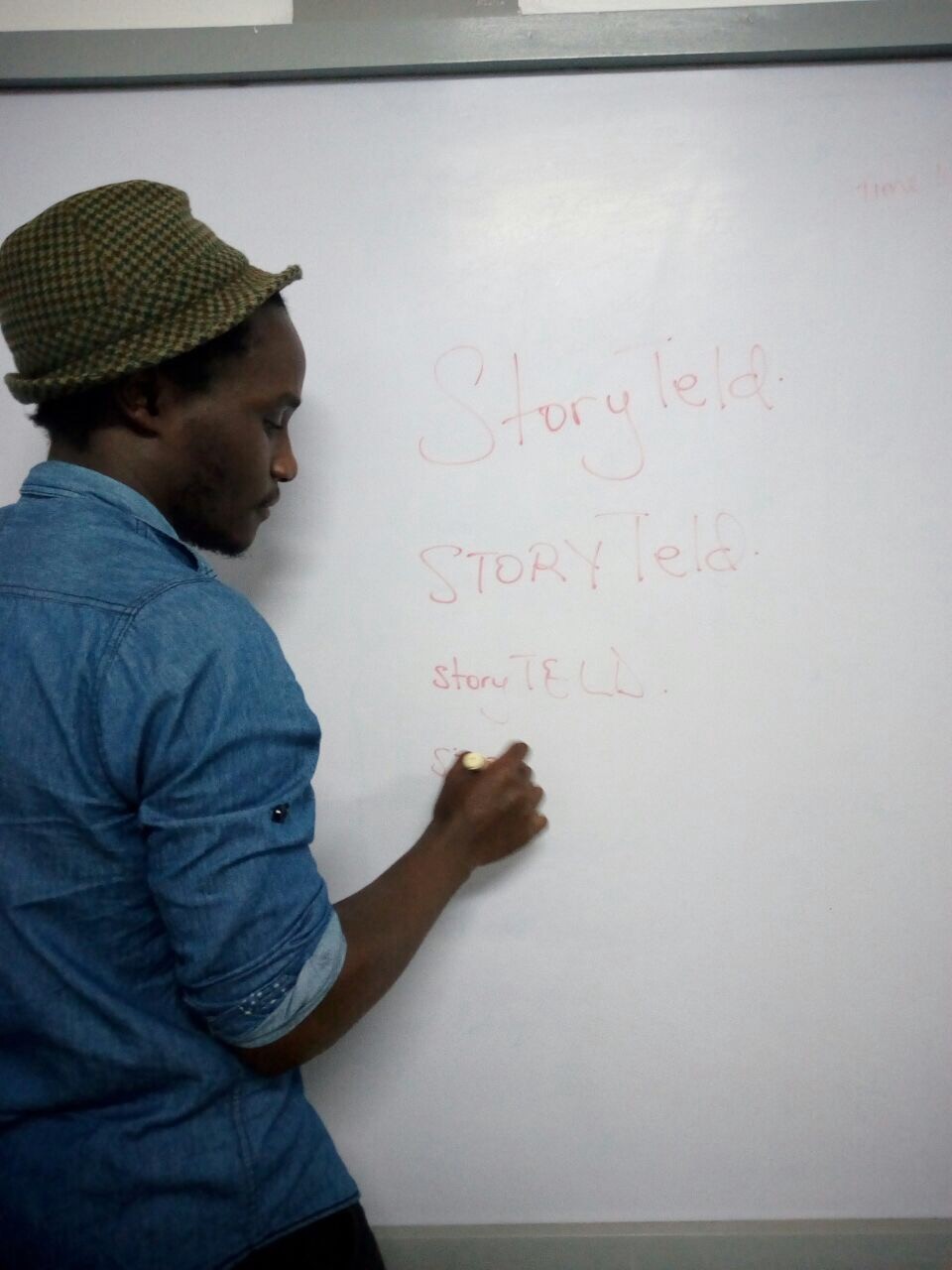
Once the audio-visual stories are ready, according to Rukundo, the team leader at STORYTELD, they are packaged for mobile-first consumption and then distributed on the organisation’s various online and social media platforms. In developing the content, the social enterprise seeks to reach out to young audiences that may not feel well-served by the traditional formats of storytelling in the legacy or mainstream media.
“STORYTELD’s goal is to create an empowering, educative, emancipating and entertaining platform to draw attention to stories that would otherwise go ignored or underreported,” explains Rukundo. “As an online resource, STORYTELD is accessible to anyone in the world with an internet connection. We take full advantage of today’s technology and social media apparatus to create short videos. The videos are packaged to provide clear, concise, fact-based, and yet entertaining presentations which provoke thought and engaging conversations that allow young people to share ideas and perspectives so they can form their own opinions and ask the questions that matter to their future.”
Songa, who is the brainchild of STORYTELD, says he first mooted the idea to a local media company that he worked for after getting frustrated with the mundane nature of his job as an online editor and seeing an opportunity to reach out to a newer, younger audience demographic through much more innovative content. However, the media houses sat on their hands and did not offer room for him to nurture his idea.
“The idea of STORYTELD is something I first mooted to my employer. I was like, ‘You guys can start doing this kind of content a lot more.’ But then, several months down the road, I am like, ‘Hi guys, remember that thing I pitched?’ And everyone was like, ‘You see, Songa, it’s a really nice idea and everyone wants it but there are systems to follow [before it could come to life’.”
Having realised that the idea he was very passionate about was unlikely to see the light of day and that the company was more comfortable using him as a glorified copy and video editor, he decided to call it quits — and ventured out on his own.
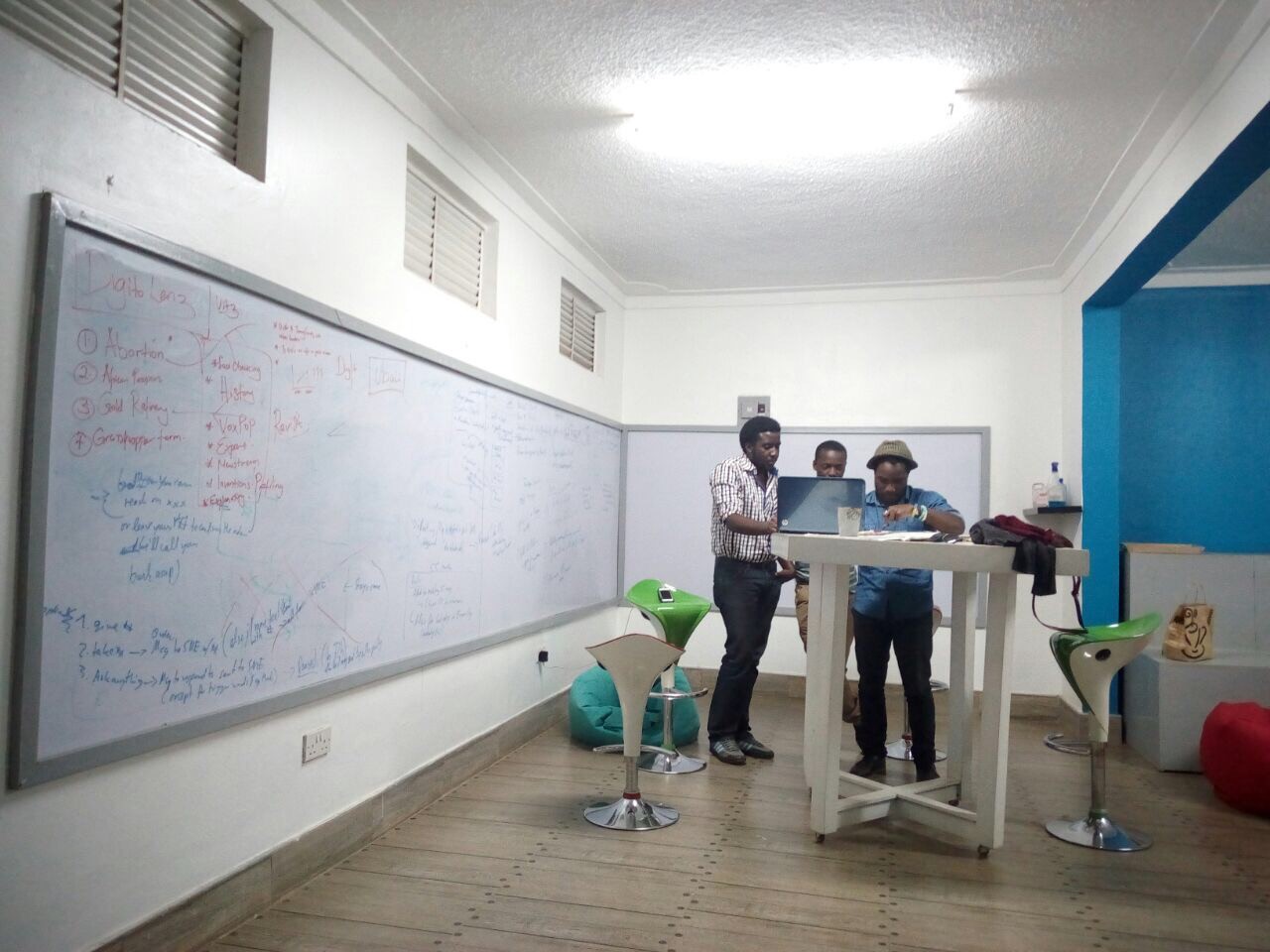
Armed with just his idea and passion, Songa hit several dead-ends — but that was until he met Rukundo, who was much savvier not just with media and technology, but also with the mechanics of how to marry their passion with generating revenue from different non-profit sources to sustain it.
They initially battled over whether to register as a for-profit or non-profit entity, but the decision to run STORYTELD as a non-profit organisation carried the day. And it was a move that they did not regret. Eventually, after producing some initial videos with their savings, STORYTELD received support from several media support organisations in Uganda, including Konrad Adenauer Stiftung (KAS), Chapter Four Uganda, Action Aid International Uganda and Friedrich-Ebert-Stiftung (FES) in Uganda.
“We were initially just a group of passionate people who had a dream to tackle those tough stories and make a difference in the media,” explains Rukundo. “We were bootstrapping everything.”
The reality, though, was that they couldn’t produce quality content on shoestring budgets. The team then decided they needed to generate some operational funds through their own sources as they looked for entry points on the road to self-sustainability. Consequently, over the last four years, they have produced a series of multimedia content that does not go to their website but is used by their clients to promote their products.
“Our model now is creative work and commissioned work,” explains Rukundo. “When we started out initially, we were doing mostly our own creative stories, the stories that we cared about. However, those stories do not transcend the organisation; they do not pay rent or hire equipment. So, to fill that gap, we had to do commissioned work and the idea behind that was to make enough money so that we could again tackle our own creative stories.”
Some of the commissioned content, however, plays a dual role. For instance, according to Songa, their decision to film food preparation at a restaurant was an opportunity to kill two birds with one stone. First, the story was commissioned as a result of a collaboration with the restaurant owner, Rita Kirabo, who will pay for the production process, thereby earning STORYTELD some revenue. Second, it enables the burgeoning company to venture into packaging content that is much sought after by particular audiences but is not often readily available, especially in parts of Africa like Uganda.
Towards the end of the filming, I ask Kirabo, the proprietor of Café Garnish, who had been watching it all with curious but detached interest as she supervised her employees, why she thought STORYTELD had what it took to, well, tell the story of her business.
“Their work is really detailed. They do not do it just for the sake of completing it. They put a lot of effort and thinking into their work,” she said, before asking, “Have you ever watched something or a clip that you keep watching again and again? Well, that’s what their work is like.”
STORYTELD has dabbled at other creative ways of generating informative content. In the run-up to Uganda’s 2021 general elections, held on January 14, they developed a fact-checking mechanism named StoryChecker, through which they would use video to assess the campaign information shared in the media for fact and fiction.
“StoryChecker was meant to be something that consistently fact checks the media,” said Rukundo, explaining that they had received support from organisations across the continent such as PesaCheck and others to set up the requisite structures to produce strong content. However, they did not achieve what they initially planned.
Rukundo is nonetheless optimistic that StoryChecker will take on a new life form this year. He said, “StoryChecker wasn’t meant for just the election, it is a tool. We are still talking and trying to see how best we can approach this topic and maybe get some funding for it. We need all the support that we can get. We are a young media organisation and, while we want to really do this work, we need money. It is expensive to do media work.”
From the work that they have done so far, the STORYTELD team has shown that their hearts are in the right place. At the 2019 Uganda National Journalism Awards, organised by the African Centre for Media Excellence (ACME), a story produced by STORYTELD’s Songa and Opira emerged first runner-up in the photo and video journalism category. In 2020, they scooped two awards from the same organisation in the photo and video journalism category, as well as the health category, a testimony to the consistently high quality of the content that the multimedia company is becoming synonymous with.


